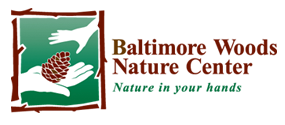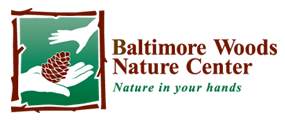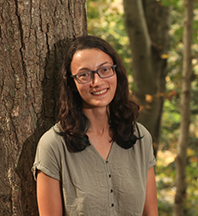Week of July 20, 2025 – July 26, 2025
by Katie McLaughlin, Environmental Educator
This year I had a few of my Trail School students tell me that they want to be me, teaching others about nature, when they grow up. Yes- I totally teared up when they told me that, but it got me thinking about the story of how I came to be an Environmental Educator. I was always catching frogs, finding giant snapping turtles as a kid, or spending evenings on Oneida Lake fishing. However, I think I can actually pinpoint the moment when I decided this is what I want to do for the rest of my life:
It was my final year as a camper (before I was a CIT at that same camp) one Thursday evening – August 16th 2007 to be precise. I was at a residential camp and my cabin had the chance to go out on the lake after the final campfire, way past curfew with the Camp Director to watch the annual Perseid Meteor showers. I remember being in awe, watching the stars shine so bright and meteors streak across the sky. The Camp Director was telling us the stories of the constellations when a beaver had slapped its tail in the water next to us. All of us 12 year old girls jumped as we were startled but we were quickly calmed knowing what happened and eagerly listened for other sounds of the night after.
I remember making a wish on a shooting star that night so I could never leave camp. It’s now my 14th season working at various camps across the state – so I guess that wish came true!
While this story is when I fully realized that I wanted to work with nature somehow, all my prior experiences are what led me there. I would spend warm spring nights chasing frogs out of the road, or build snowmen in the Tug Hill Plateau, or spend a few weeks at a summer camp… each time I was able to play in nature (with a guide, friends, or alone) allowed my connection to grow naturally.
I know that not everyone who comes to camp will be an Environmental Educator or even a seasonal counselor, but I do know that the consistent experience of playing out in nature as a kid impacts them for the rest of their lives. These unstructured, child-led activities allow natural curiosity to grow, provide physical benefits, activate imagination, let us learn how we all should interact with each other.
Now I leave a thought for you. If you are someone reading this, I would guess that you care about Baltimore Woods and nature in general. What was the moment that you realized that caring for nature was important to you?


